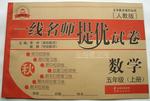题目内容
B. same
C. equal
D. similar

 一线名师提优试卷系列答案
一线名师提优试卷系列答案|
第一节:短文改错 此题要求改正所给短文中的错误,对标有题号的每一行作出判断,如无错误,在该行右边横线上画一个勾(√);如有错误(每行只有一个错误),则按下列情况改正; 该行多一个词:把多余的词用斜线(\)划掉,在该行右边横线上写出该词,并也用斜线划掉。 该行缺一个词:在缺词处加一个漏字符号(∧),在该行右边横线上写该加的词。 该行错一个词:在错的词下划一横线,在该行右边横线上写出改正后的词。 注意:原行没有错的不要改。
| |||||||||||||||||||||||
Most of us seem to reach our peak of alertness (警觉) around noon. Soon after that, alertness declines, and sleepiness may set in by mid-afternoon.
Your short-term memory is best during the morning—in fact, about 15 percent more efficient than at any other time of day. So, students, take notice: when you are faced with a morning exam, it really does pay to review your notes right before the test is given.
However, long-term memory is different. Afternoon is the best time for learning materials that you want to recall days, weeks or months later. Politicians, business executives or others who must learn speeches would be smart to do their memorizing during that time of day. You should try to do most of your studying in the afternoon, rather than late at night. Many students believe they memorize better while burning the midnight oil because their short-term recall is better during the early hours of the morning than in the afternoon. But short-term memory won’t help them much several days later, when they face the exam.
By contrast, we tend to do best on tasks related to the process of knowing, understanding, and learning numbers during the morning hours.
What about sports? During afternoon and early evening, you’re able to react the quickest to an outside stimulus—like a baseball speeding toward you. Studies have also shown that late in the day, when your body temperature is peaking, you will consider PE easier and less tiring—whether it actually is or not. That means you are more likely to work harder during a late afternoon or early evening workout, and therefore benefit more from it.
In fact, all of your senses—taste, sight, hearing, touch and smell—may be at their keenest during late afternoon and early evening. That could be why dinner usually tastes better to us than breakfast.
While all of us follow the same general pattern of ups and downs, the exact timing varies from person to person. It all depends on how your “biological” day is structured. Each of us can increase our knowledge about our individual rhythms. Learn how to listen to the inner beats of your body; let them set the pace of your day. You will live a healthier and happier life.
【小题1】What does the underlined “it really does pay” mean?
| A.It will cost a lot. | B.It requires price. |
| C.It is very painful. | D.It is worthwhile. |
| A.in the afternoon | B.in the late evening |
| C.in the early morning | D.right before the exam |
| A.we eat more food at noon |
| B.we feel most tired if we exercise in the evening |
| C.it is a good choice to study math in the morning |
| D.we feel most sleepy before noon |
| A.What’s Your Best Time of the Day for Different Tasks |
| B.How to Live a Healthier and Happier Life |
| C.How to Study Efficiently |
| D.How to Keep Your Best State of Learning |
| 短文改错 。 此题要求改正所给短文中的错误,对标有题号的每一行作出判断; 如有错误(每行只有一个错误),则按下列情况改正; 该行多一个词:把多余的词用斜线(\)划掉,在该行右边横线上写出该词,并也用斜线划掉。 该行缺一个词:在缺词处加一个漏字符号(∧),在该行右边横线上写 该加的词。 该行错一个词:在错的词下划一横线,在该行右边横线上写出改正后的词。 注意:原行没有错的不要改。 | ||
|